Mozambique: Zimbabwe donates 130t of food, seeds and building materials for Cabo Delgado
Cabo Delgado: PGR pledges to investigate abuses against IDPs
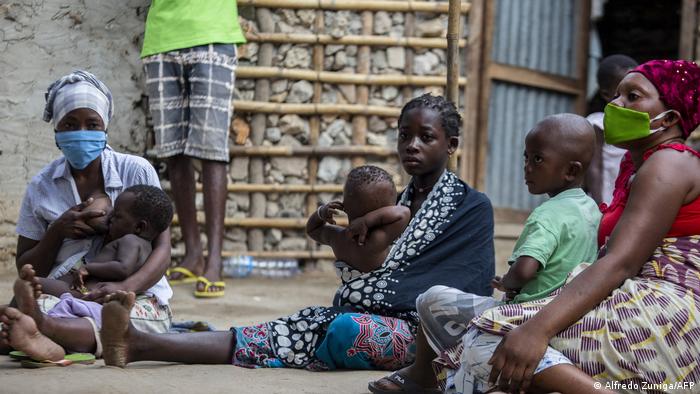
FILE PHOTO - For illustration purposes only. [Fule photo: DW]
- Civil society organizations in Cabo Delgado have denounced abuses and violations committed against victims of terrorism in northern Mozambique to the authorities, demanding that the offenders be held accountable.
At a meeting with members and civil society organisations in Pemba, on Monday (25-10), the assistant attorney general, Glória da Conceição Adamo, promised to investigate allegations of ill-treatment of victims of terrorism in Cabo Delgado.
Among the irregularities presented by civil society to the Public Prosecutor’s Office are the alleged diversion of humanitarian aid, corruption in obtaining donations and in the handling of identification documents for the displaced.
“The famous checks, the food ‘voucher’, are distributed in various parts of Cabo Delgado province. At the moment, what has happened is that this check does not reach [the real recipients, the displaced] and is sold by the entities that manage” the system, activist Vasco Acha says.
“The people who are supposed to distribute help, divert that little amount which should reach the displaced people,” he alleges.
Complaints against the Defence and Security Forces
Alleged violations of undocumented displaced persons by the Defence and Security Forces (FDS) were also reported to the public prosecutor. “Many citizens complain of being abused by the police, of being assaulted, while others complain of violence, including sexual violence,” says Emerson Ubisse, from the Christian Council of Mozambique.
“There are several complaints which must be taken seriously, as civil society, as the government, and this will tarnish the relationship between the FDS and the community, which at this moment it is extremely important to strengthen in our battle to locate and stop terrorist groups,” the activist notes.
According to Marta Quicuco, vice-president of the Forum of Civil Society Organisations of Cabo Delgado (FOCADE), the units of the Civil Identification Directorate (DIC) in the districts have lost the displaceds’ documents.
“And when you go to the Registry, there is a request for a narrative birth certificate, and that is a certificate which they [the victims of terrorism] have nowhere to obtain. On the other hand, the police seemingly cannot see who is displaced and who is not,” Quicuco explains.
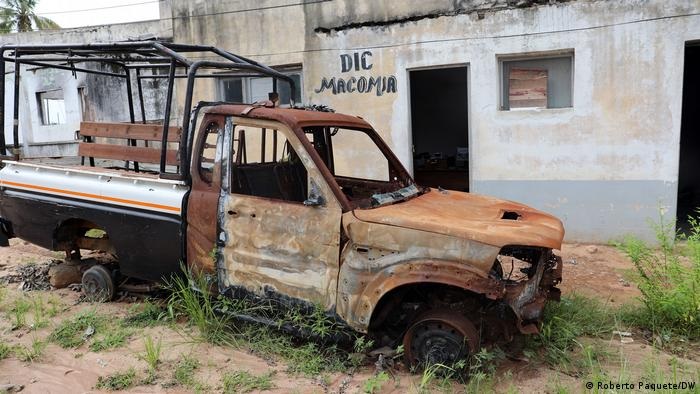
“If the police ask for documents, and the displaced person doesn’t have them, no matter that can they justify it with the fact of being displaced, they don’t take this into account. They take them to the police stations, and sometimes “chamboqueiam” them [beat them with a chamboko, a kind of baton used by police officers] because they don’t have documents,” the activist elaborates.
PGR “very worried”
The Deputy Attorney General expressed concern about the complaints. She reiterated the need to audit organizations working in the distribution of humanitarian aid and promised to investigate and hold accountable those involved in the diversion of donations.
“I am very concerned about the issue of the sale of checks [food vouchers], and I have been exchanging messages with the chief public prosecutor so that we can find a solution, because this is a criminal matter,” Glória da Conceição Adamo said.
Regarding allegations of FDS abuses, the public prosecutor’s representative asked for them to be swiftly forwarded to the Public Prosecutor’s Office, while it may still be possible to obtain evidence of the crime.
“Because of time [lapse], traces are erased, evidence is erased, people disappear. We are talking about the Defence and Security Forces, and they move around a lot,” she noted.

“I noticed that there is an egregious amount of domestic violence and rape involving young people, carried out by the FDS. We don’t know from which branch, but what is certain is that they are identified in this way. These are glaring situations that must be dealt with immediately,” the deputy attorney general said.
Civil society, for its part, suggested strengthening FDS human rights training as one possible way of ending violations of victims of terrorism.
“Our police, our military, must know how to deal with these people. They are people who are already traumatized, and end up being more traumatised,”FOCADE’s Marta Quicuco emphasised.
According to the vice president of FOCADE, it is necessary “to find ways to prepare our Defence and Security Forces so that they know how to deal with this situation, and what human rights are and how to respect them.”



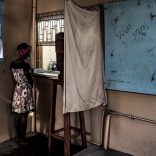
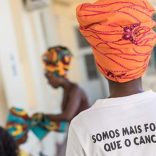

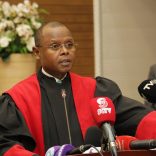
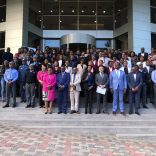





Leave a Reply
Be the First to Comment!
You must be logged in to post a comment.
You must be logged in to post a comment.